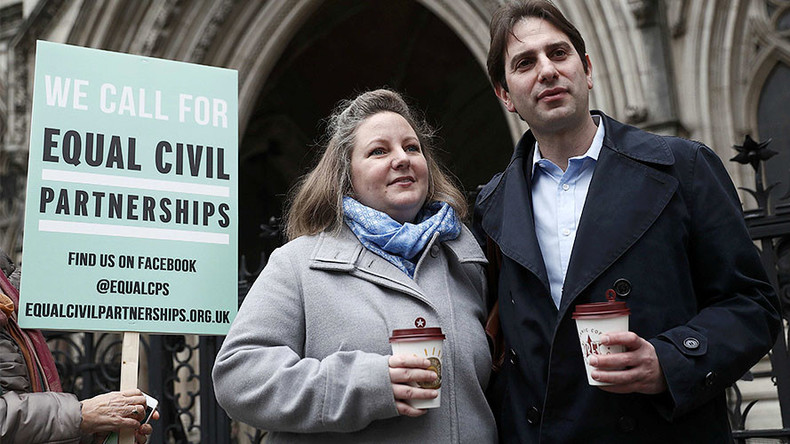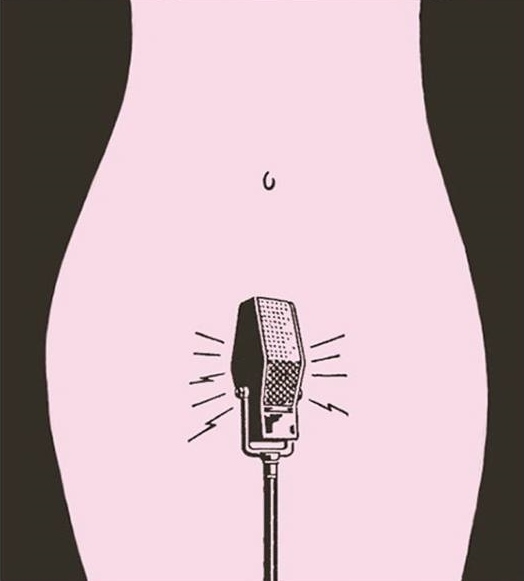Lately there’s been some controversy about the word ‘partner’, meaning the person you’re in a long-term relationship with. I’d always considered ‘partner’ an innocuous term, too colourless to generate strong feelings (though an acquaintance once told me he hated it because it was so bland: ‘it sounds like you’re a firm of solicitors’.) But some people, it turns out, do feel strongly about it–or more exactly, about who has the right to use it.
In August Sadie Graham described her frustration with a series of encounters where the people she was introduced to had talked about their ‘partners’:
it was a guessing game every time whether they meant a long-term, serious relationship with another queer person or a long-term, serious relationship with another straight person, but one who wears flannel and cares about justice and reciprocity and shit.
As she saw it, the hip heterosexuals who talked about their ‘partners’ were guilty of a kind of cultural appropriation, using the language of queerness to make themselves look cool, and to downplay or deny their heterosexual privilege. ‘At some point’, she complained, ‘it’s like: can we have anything?’
These sentiments were echoed a month later in an article about ‘partner’ that posed the question bluntly: ‘should straight people be saying it, or does it belong to queers?’ The writer, a self-described femme married to a trans man, explained why the two of them prefer ‘partner’ to the spousal terms ‘husband’ and ‘wife’. First, because it’s ‘the only word equipped to convey the seriousness of our bond without ascribing either of us a fixed gender’; and second, because it ‘dispels some of the ownership associated with the institution of marriage’. This second point–that ‘partner’ doesn’t carry the same patriarchal baggage as ‘husband’ and (especially) ‘wife’–is also a reason why many non-queer couples use it. But in this writer’s view they shouldn’t just assume they’re entitled to do so:
“partner” was brought into its current understanding through a history of use—often out of a necessity not felt by cis, straight people—within the queer community. If they want to say “partner,” people of relative privilege should take a moment to reflect on their word choice.
I’m tempted to reply that if people want to make claims about the history of words, they should take a moment to check their facts. As a glance at the relevant OED entry makes clear, ‘partner’ has been used for centuries to denote a spouse, a lover or a member of a cohabiting couple, and for most of that time it has been used predominantly by and about heterosexuals. The earliest illustrative quotations for this sense of ‘partner’ come from letters written in the late 16th century by Richard Broughton and his wife Anne, each of whom refers to the other as ‘my partner’. By contrast, the earliest quotation illustrating same-sex usage is dated 1977. That’s not to say the term wasn’t used by lesbians and gay men before the 1970s, but it’s unlikely to have been common before the 20th century.
Even today, queer uses of ‘partner’ have not overtaken straight ones, mainly because ‘partner’ has become the mainstream term of choice for referring to people who live together without being married. Since 1970 the number of people in relationships of this kind–the majority of them heterosexual–has increased significantly, and as a result the word ‘partner’ is very frequently used in reference to cohabiting heterosexuals. There is nothing cool or hip about this usage, as the OED’s examples of it show. It’s hard to imagine anything less cool—or more heteronormative—than this piece of advice, taken from a 2000 publication of the Institute of Advanced Motorists: ‘if you are a married or cohabiting man, try adding your partner to your insurance policy’.
There is, in short, no historical foundation for the claim that straight people ‘appropriated’ ‘partner’ from queers. But of course, proposals about the use of a word in the present do not have to be based on facts about its usage in the past. We wouldn’t think much of someone who defended the use of racist or sexist epithets by saying ‘but people have used this word in this way for hundreds of years’. Being a politically conscious language-user may well mean deferring to the preferences of marginalised groups—for instance, using the names/pronouns they specify, avoiding labels they consider offensive, and being cautious about using in-group terms (like words from an indigenous language, or reclaimed slurs like ‘dyke’ and ‘crip’) if you don’t belong to the group yourself. But how far should this principle extend? Do ‘people of relative privilege’ have a moral obligation to stop using everyday words like ‘partner’ if they are claimed by a marginalised group? More generally, what does it mean to talk about the appropriation, and thus by implication the ownership, of words?
Modern capitalism has made it possible for a person or corporation to claim ownership rights over a word by trademarking it. This is a strictly limited form of ownership: Apple, for instance, can only use its rights over the word ‘apple’ to prevent its use by competitors in the tech sector, not to stop the rest of us talking about fruit. Specsavers, which has trademarked the verb form ‘should’ve’ (as used in its ‘should’ve gone to Specsavers’ ads), can’t just sue anyone who drops ‘should’ve’ into casual conversation: they’d have to be using it in a way that threatened the company’s commercial interests. But not all cases are so straightforward. Some have raised questions about whether the trademarking of words places unacceptable restrictions on artistic or political freedom.
One case of this kind was reported earlier this year, when several romance novelists received a message from a fellow-author, Faleena Hopkins, telling them to remove the word ‘cocky’ from their book titles because she had been granted a trademark giving her the exclusive right to use it. Hopkins is the producer of a self-published book series in which every title contains the adjective ‘cocky’ (they include Cocky Biker, Cocky Cowboy and Cocky Romantic): she applied for the trademark after she became aware that readers were ordering other books with ‘cocky’ in their titles in the mistaken belief that they were part of her series. She managed to convince the US patent office, which granted the application, that titles including ‘cocky’ were part of her brand. But that didn’t impress the other writers who were forced to retitle or remove their books from sale. In fact, they petitioned for the trademark to be revoked, pointing out that ‘cocky’ is a common word in romance titles because it’s a conventional way of describing the ‘alpha male’ hero who is one of the genre’s stock characters. How, they asked, can anyone be granted exclusive rights to a cliché?
In France in 1979, a women’s group known as ‘Psych et Po’ (short for ‘psychanalyse et politique’, or in English ‘psychoanalysis and politics’), managed to trademark the words ‘Mouvement de Libération des Femmes’ (Women’s Liberation Movement) and its abbreviated form ‘MLF’, so that the name could no longer be used by any other group. This benefited Psych et Po both politically and commercially: by taking the movement’s name as their own, they were able to present themselves, and their publishing company des femmes, as the quasi-official voice of French feminism. Since most feminists considered them an unrepresentative fringe group whose ideas had little to do with feminism, their action was seen as a deliberate provocation. The conflict it caused consumed feminists’ energies for several years, prompting Simone de Beauvoir to describe it as ‘a grave threat to the entire women’s movement’.
The question these cases raised was whether an individual or a small group should be able to take a community resource–a word or phrase that was previously available to everyone–and turn it into private property. In the controversy about ‘partner’, by contrast, the issue is more or less the opposite. The writers I quoted earlier aren’t accusing straight people of treating a communal good as their exclusive property, but rather of failing to recognise ‘partner’ as the property (in this case moral rather than legal) of the LGBTQ community. In the age of identity politics, it seems that more and more disputes over language are being framed in this way: ‘this word belongs to group X, and if you’re not a member of that group your use of it is disrespectful/ offensive/ ‘cultural appropriation’.
The idea that words are property–that some people have a right to them and others don’t, or that they can be stolen from their ‘rightful owners’– is one I struggle to get my head around, because it’s at odds with what we know about the history of languages and the way they are shaped by contact between different groups. Consider, for instance, the 20th century British argot Polari, which is remembered and celebrated now as—to quote the title of Paul Baker’s book about it—‘the lost language of gay men’. There’s no dispute that Polari did at one time function as a gay in-group code, but it wasn’t something gay men just spontaneously created for that purpose. Rather, as Baker explains,
It arose from a number of overlapping “low” forms of slang that were associated with travelling or stigmatised groups, stretching way back to the Thieves’ Cant of Elizabethan England. The 18th century added words from the molly house culture – mollies being men who had sex with other men… The 19th century also saw the incorporation of some Parlyaree, the Italian-derived language used by travelling entertainers, fairground people, costermongers and beggars. Later influences on Polari included Cockney rhyming slang, backslang (pronouncing a word as if it is spelt backwards), Yiddish, Lingua Franca (words from sailors’ slang), American air force slang and the vernacular of drug users.
To identify gay men as the owners and originators of Polari would not do justice to this history. At the same time, it would make little sense to accuse gay Polari-speakers of stealing or misappropriating words that ‘really’ belonged to someone else. The words Polari-speakers learnt from fairground people and Yiddish speakers didn’t stop being used in Parlyaree or Yiddish: they just acquired an additional use in Polari Words are not objects that can only be in one place, or belong to one community, at a time.
In the past the charge of ‘stealing’ words was most often levelled against minorities by conservatives who claimed to speak for the majority. I’m old enough to remember, for instance, when newspapers regularly printed letters complaining that a bunch of perverts had stolen that useful and charming word ‘gay’, which as everyone knew really meant ‘cheerful or brightly coloured’. Obviously, they lost that argument–though the people who won it were not able to prevent the subsequent development of a new usage among (some) young people in which ‘gay’ means ‘lame’ or ‘uncool’.
More recently, religious conservatives accused campaigners for same-sex marriage of hi-jacking the word ‘marriage’ and trying to change its meaning (‘the union of a man and a woman’) to suit their own agenda. And though they were operating with an unconvincing theory of language (according to which the meanings of words are set in stone), what they said about their opponents was correct. Of course campaigners for same-sex marriage were trying to change the meaning of ‘marriage’: that’s what radicals do, try to change things. ‘You can’t go around appropriating other people’s words and changing their meanings to suit yourself’ is an inherently conservative argument, and the only part of it that’s right is ‘to suit yourself’. Attempts to change language will only succeed if they also suit other people in the relevant linguistic community. For that to happen, enough people need to be persuaded to see something about the world in a new way. Debates about language are never only about the words.
I’m not suggesting that all change, either in language or in the world, should automatically be considered progressive; I’m not saying it’s never legitimate to object to someone else’s way of using words. But whether you’re promoting change or resisting it, you can only do it by persuasion, not by laying down the law on the basis that the words you’re arguing about belong to you, and other people have no right to an opinion. Words belong to whoever uses them, and different people use them differently, reflecting their differing beliefs, values, life experiences and social positions. We need to learn to live with that–to understand that we don’t own words, and we can never make everyone use them our way.


